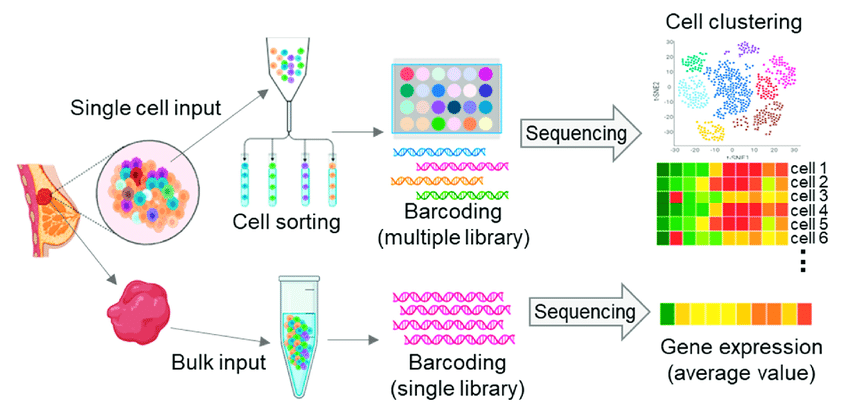The field of immunology is experiencing a period of rapid advancement, fueled by the development of powerful new tools and technologies. These innovations are transforming our understanding of the immune system and its intricate role in health and disease. This blog post will explore some of the most exciting recent additions to the immunologist's research toolkit, highlighting their potential to revolutionize our approach to immunology research.
1. Single-Cell and Spatial Omics Technologies
Single-cell RNA sequencing (scRNA-seq) has emerged as a transformative tool for dissecting cellular heterogeneity within the immune system. By analyzing the transcriptome of individual cells, scRNA-seq allows researchers to identify and characterize novel immune cell subsets, define cellular differentiation trajectories, and elucidate the complex regulatory networks governing immune responses. This technology has been instrumental in uncovering new regulatory T cell populations, deciphering intratumoral heterogeneity, and understanding the dynamics of antigen presentation .
Spatial omics technologies, such as spatial transcriptomics (ST) and imaging mass cytometry (IMC), are further expanding our understanding of immune function in tissues. These techniques enable researchers to map the spatial distribution and interactions of immune cells within their native tissue environment, providing crucial insights into immune cell trafficking, organization, and function within lymphoid organs, inflamed tissues, and tumors .
2. Gene Editing Tools
The advent of CRISPR-Cas9 gene editing technology has revolutionized the ability to manipulate the immune system with unprecedented precision. Researchers can now introduce targeted mutations or deletions into immune cell genomes, allowing them to investigate the functional consequences of specific genes in immune responses. To delve deeper into this revolutionary technology, check out the informative video below that provides a clear and concise explanation of CRISPR-Cas9 and its applications in immunology research. Suppliers like Gentaur provide vital tools for this research, offering high-quality CRISPR-Cas9 enzymes and related reagents . This makes it easier for scientists to unlock the secrets of the immune system and develop new therapies for a range of diseases. This approach has been instrumental in dissecting the role of immune checkpoints in T cell activation, engineering CAR T cells for cancer immunotherapy, and modeling human diseases with defined genetic defects .
3. Microfluidics and Organ-on-a-Chip Systems
Microfluidic devices and organ-on-a-chip (OOC) systems are miniaturized platforms that recapitulate key features of the immune system in vitro. These platforms allow researchers to precisely control and monitor immune cell interactions with pathogens, biomaterials, and therapeutic agents under dynamic conditions. OOC systems hold promise for personalized medicine applications, enabling the investigation of patient-specific immune responses and the development of targeted immunotherapies .
4. Machine Learning and Artificial Intelligence
The burgeoning field of artificial intelligence (AI) and machine learning (ML) is finding increasing application in immunology research. By analyzing vast datasets of immunological data, including single-cell omics data, protein-protein interaction networks, and clinical patient information, AI algorithms can identify novel immunological signatures, predict patient outcomes, and guide the development of new immunotherapies .
Conclusion
The recent innovations highlighted in this blog post represent a powerful new wave of tools that are transforming the landscape of immunology research. These technologies hold immense promise for unraveling the complexities of the immune system, leading to the development of novel diagnostics, vaccines, and immunotherapies for a wide range of diseases.
Future Directions
The future of immunology research is undoubtedly bright, with ongoing advancements in these and other emerging technologies. The integration of single-cell and spatial omics data with AI and ML algorithms is likely to lead to the discovery of even more intricate layers of immune system regulation. Additionally, the development of new in vivo imaging techniques and humanized mouse models will provide further insights into immune function within the intact organism. As these innovations continue to evolve, immunologists will be better equipped to tackle the most pressing challenges in human health.
